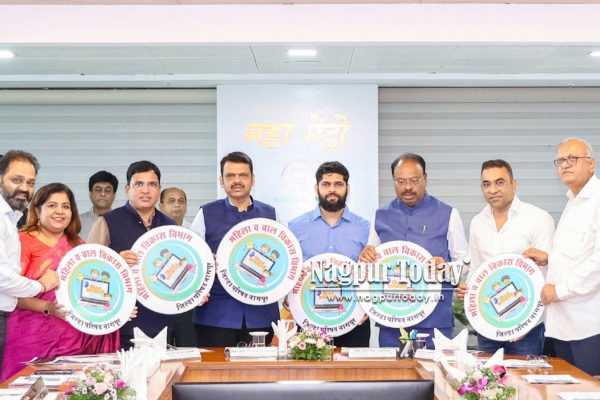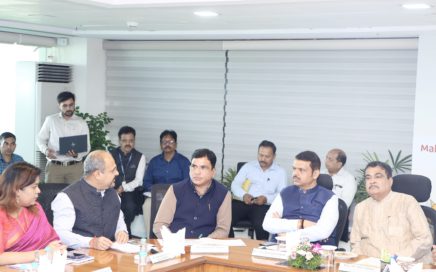 Nagpur: In a groundbreaking leap for rural education, Maharashtra Chief Minister Devendra Fadnavis on Sunday inaugurated India’s first AI-enabled Anganwadi under the transformative “Mission Bal Bharari” in Waddhamna village, Hingna tehsil of Nagpur district. This initiative aims to revolutionize early childhood learning by integrating cutting-edge technologies like AI dashboards, VR headsets, and interactive digital content into grassroots education systems.
Nagpur: In a groundbreaking leap for rural education, Maharashtra Chief Minister Devendra Fadnavis on Sunday inaugurated India’s first AI-enabled Anganwadi under the transformative “Mission Bal Bharari” in Waddhamna village, Hingna tehsil of Nagpur district. This initiative aims to revolutionize early childhood learning by integrating cutting-edge technologies like AI dashboards, VR headsets, and interactive digital content into grassroots education systems.
The project, a visionary undertaking by the Nagpur Zilla Parishad, marks a major stride in bridging the digital divide between rural and urban classrooms. Traditionally seen as modest childcare centers, Anganwadis will now become hubs of immersive, curiosity-driven education, bringing futuristic tools previously exclusive to elite urban schools directly to village children.
Children from underprivileged communities will now explore the world through virtual reality, learn with AI-assisted content, and enjoy an engaging, playful environment that encourages creativity and participation.
The inaugural ceremony was attended by key dignitaries including Revenue Minister Chandrashekhar Bawankule, Minister of State Ashish Jaiswal, MLAs Sameer Meghe and Sanjay Meshram, Divisional Commissioner Vijayalakshmi Bidari, Collector Dr. Vipin Itankar, and ZP CEO Vinayak Mahamuni.
To ensure the success of the project, Anganwadi workers have received specialized training to operate AI-integrated devices, manage content delivery, and maintain effective teaching standards in the classroom.
“Every child, rural or urban, deserves the best start to learning,”
said Dr. Kailas Ghodke, Deputy CEO of Zilla Parishad.
“So far, 49 AI-enabled Anganwadis are functional, and 40 more are in the pipeline.”
With this visionary step, Nagpur has emerged as a pioneer in India’s digital education movement, demonstrating how technology can transform even the most basic public institutions into centers of excellence.
This initiative not only promises to improve foundational literacy and numeracy, but also offers children a joyful and empowering start to education—something that could set a precedent for rural India at large.














